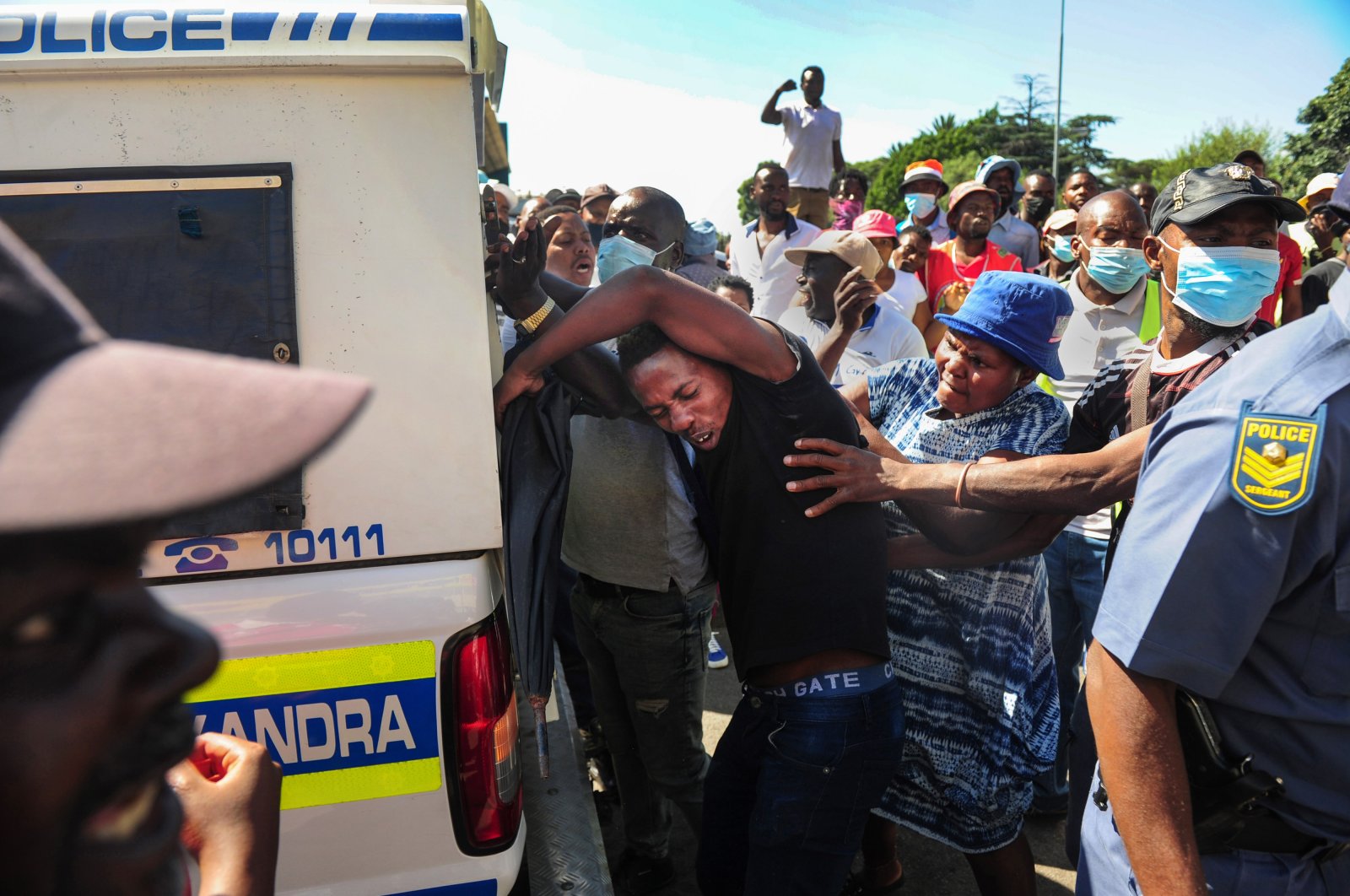
The deaths of 23 children in Johannesburg this year from suspected food poisoning have sparked outrage in South Africa, fueling tensions against foreign nationals operating small corner shops, known as spazas.
In Soweto's Naledi area, police tape still surrounds a now-closed spaza shop accused of selling snacks that allegedly poisoned six children in October.
The tragedy enraged local residents, who attacked and looted the shop before driving out the shopkeeper, reportedly an Ethiopian national. The landlord who rented out the premises also fled in fear.
An autopsy later revealed that a pesticide caused the deaths, but authorities have yet to officially link the poison to the shop.
As similar cases were reported in other areas, the outcry mounted, leading authorities to launch raids on foreign-run spazas to check compliance with laws and regulations.
Several have been forced to shut down, and the shopkeepers – generally from Ethiopia, India, Pakistan or Somalia – have fled.
Six spazas were closed in Olievenhoutbosch outside the capital, Pretoria, last week for irregularities, municipal council official Sarah Mabotsa said.
"They're selling expired food, they're selling skin products, they're selling meat, everything is in one shop," she charged.
'Operation Dudula'
As the continent's most industrialized economy, South Africa is a prime destination for people seeking work even though its own unemployment rate is around 32 percent.
The competition has triggered mistrust and even violence.
If authorities don't step in, a xenophobic vigilante group known as Operation Dudula – which means "push back" in Zulu – often does.
In Naledi, efforts by Dudula recently saw the foreign shopkeepers at six spazas replaced with South African nationals.
"We have chased the foreigners. Foreigners were running the shop before, and we kicked them out," one of the new shopkeepers, Maphoka Mohalanwani, said proudly.
The recent spate of food poisonings is undoubtedly "related to the foreigners," the 54-year-old said.
"When our kids eat chips from the streets, they don't die... they are dying because of their poison," said Mohalanwani.
The former cashier was selected for the job by Operation Dudula, which provides some funding to South Africans to take over from foreign nationals running spaza shops.
"Some stores were closed down by officials because they don't respect the laws of this country," Operation Dudula head Zandile Dabula told AFP.
And for those that reopened, "we went back to go and make sure that they closed again," she said.
Even leaders have made outright calls for all spaza shops to be run by South Africans.
Eliminating competition
The tragic wave of deaths of young children has gripped South Africa, with speculation running wild in the absence of proven facts about what really caused their deaths.
Some people believe that foreigners are deliberately setting out to poison South Africans; others say the outcry is a manufactured ploy to get the spazas and their profits back into the hands of locals.
"We don't know what is causing these things (cases)," said Somali national Zachariah Salah at one spaza in White City, Soweto.
It was not even clear if the claims of poisonings were genuine or not, he said. Either way, "it's tragic for us."
Loren Landau, who studies migration at the University of the Witwatersrand in Johannesburg, said attacks against foreign-owned shops were "really about eliminating competition for business."
"If you try to shut down South African businesses, people would protest," he said. But "you can go after a foreigner, no one will protest."
Back in White City, one of the spazas that shut down in the initial flare of anger a few weeks back has reopened to the relief of locals who rely on their corner shops.
"When it was shut, I had to go to... malls that are very far," said Nomsa Skosan, 63, who was browsing the aisles of cereal, frozen food and household items.
"If what they sell in these stores is as bad as they say, why loot them?"
